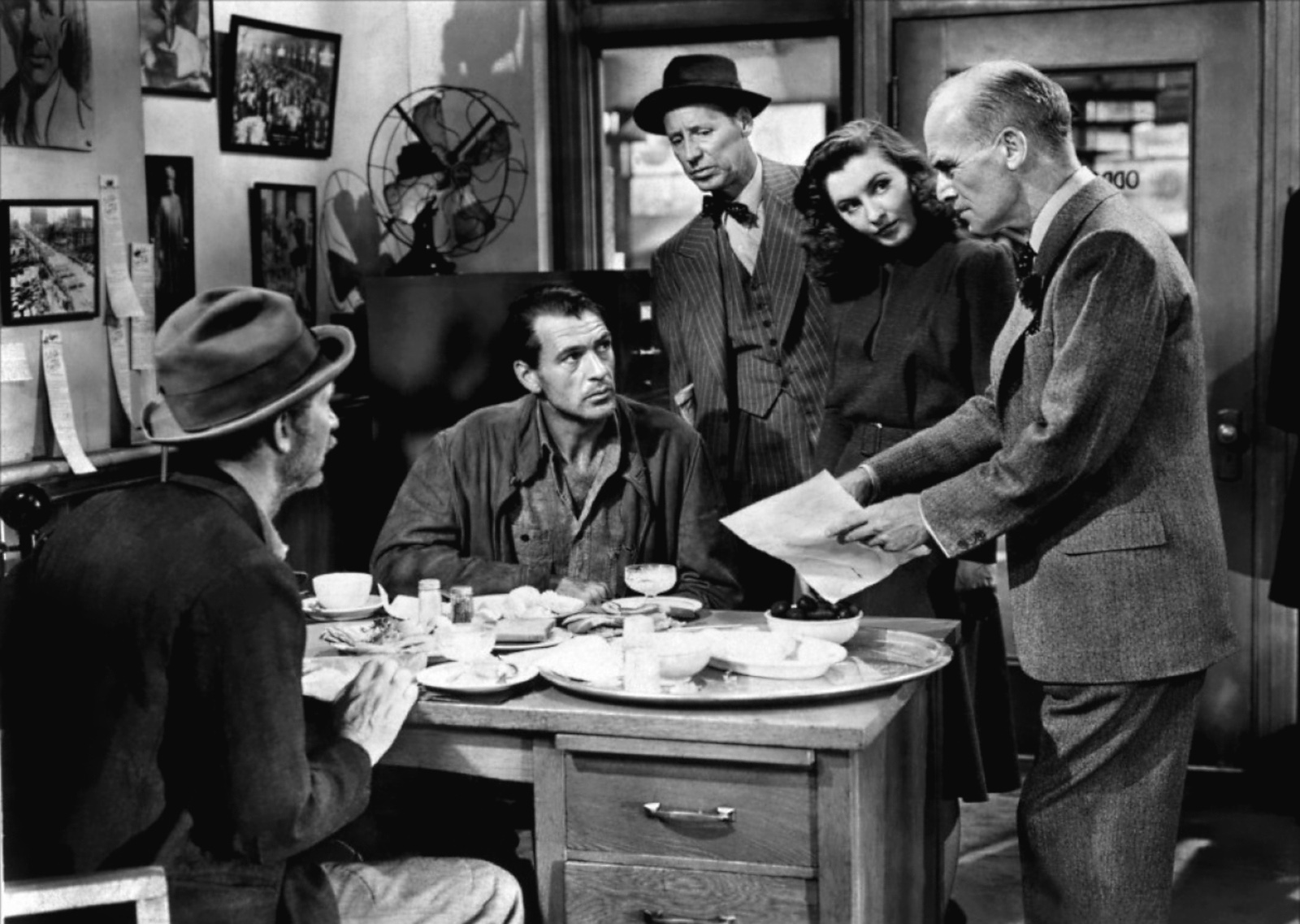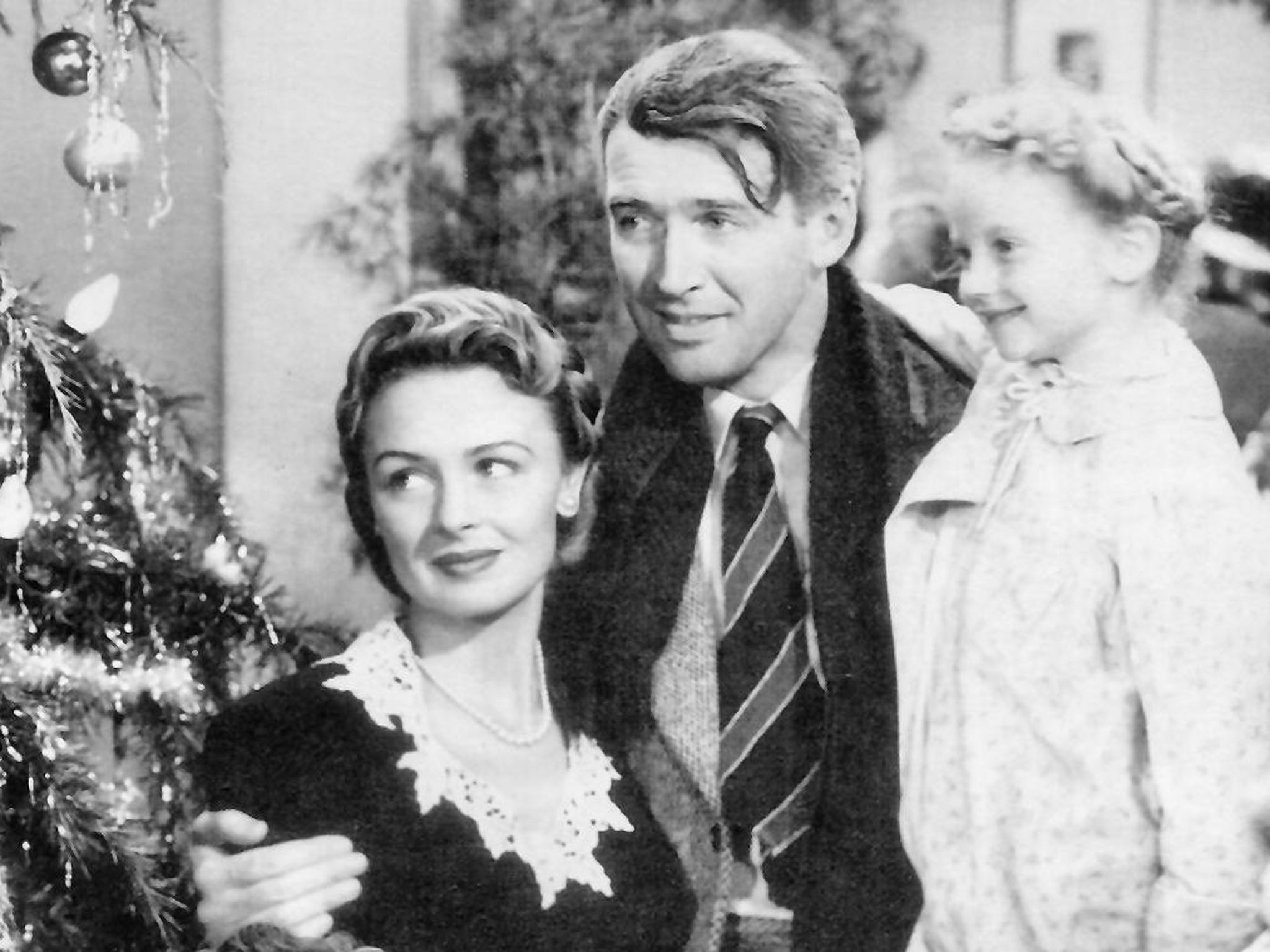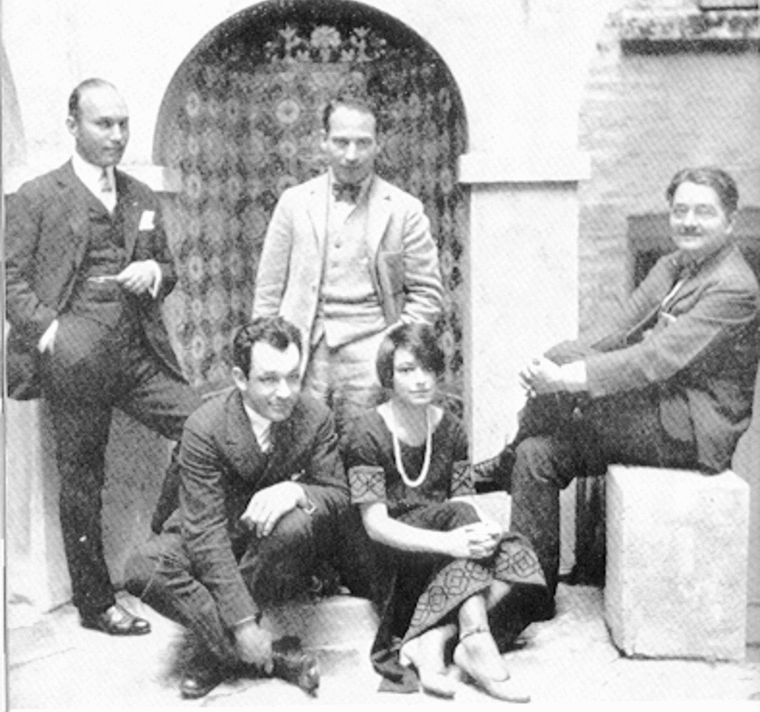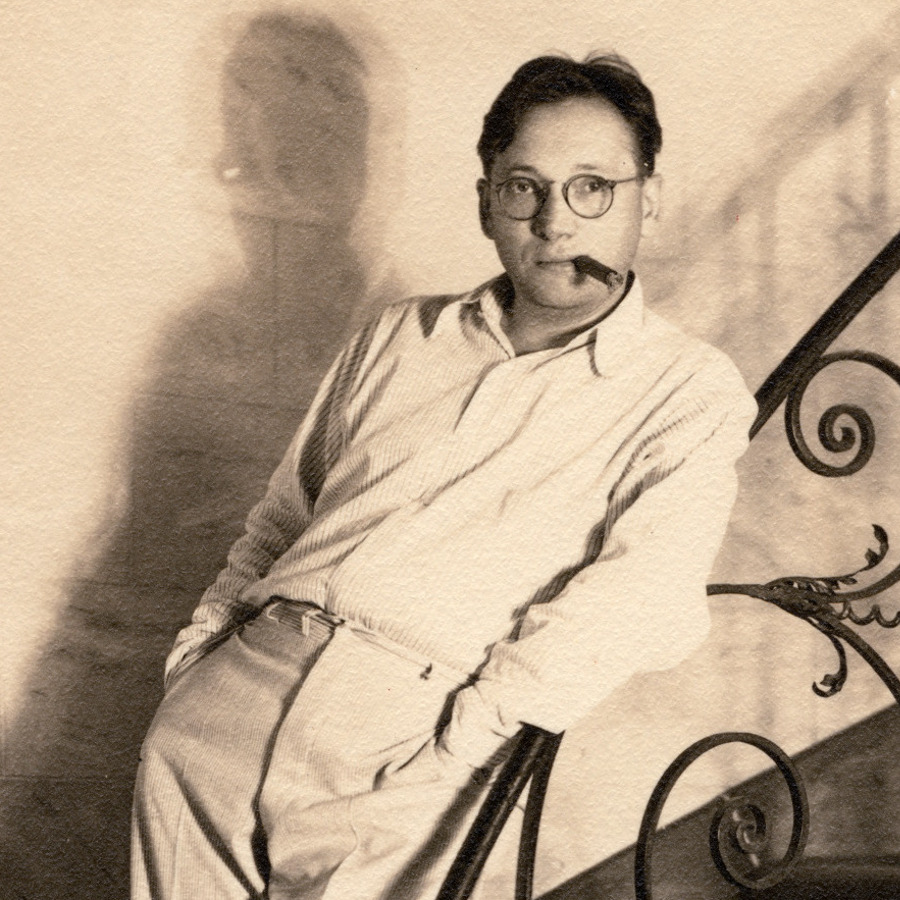|
The Greatest Gift
"The Greatest Gift" is a 1943 short story written by Philip Van Doren Stern, loosely based on the Charles Dickens 1843 novella ''A Christmas Carol'', which became the basis for the film ''It's a Wonderful Life'' (1946). It was self-published as a booklet in 1943 and published as a book in 1944. The film was nominated for five Oscars and has been recognized by the American Film Institute as one of the 100 best American films ever made, placing number 11 on its initial 1998 greatest movie list and number one on its list of the most inspirational American films of all time. Plot summary George Pratt, a man who is dissatisfied with his life, contemplates suicide. As he stands on a bridge on Christmas Eve, he is approached by a strange, unpleasantly dressed but well-mannered man with a bag. The man strikes up a conversation, and George tells the man that he wishes he had never been born. The man tells him that his wish has been granted and that he was never born. The man tells ... [...More Info...] [...Related Items...] OR: [Wikipedia] [Google] [Baidu] |
Philip Van Doren Stern
Philip Van Doren Stern (September 10, 1900 – July 31, 1984) was an American writer, editor, and Civil War historian whose story "The Greatest Gift", published in 1943, inspired the classic Christmas film ''It's a Wonderful Life'' (1946). Early life Philip Van Doren Stern was born in Wyalusing, Pennsylvania, into a family of humble means. His Pennsylvania-born father, Isadore Ullman, was a traveling merchant of Bavarian Jewish descent, who came to Wyalusing from West Virginia with his New Jersey-born wife, the former Anne Van Doren. Stern grew up in Jersey City, New Jersey, and attended Lincoln High School in Jersey City before graduating from Rutgers University. Career After graduating from Rutgers in 1924, Stern worked in advertising before switching to a career as a designer and editor in publishing. He was an historian and author of some 40 works, and was best known for his books on the Civil War that a ''New York Times'' obituary called "authoritative" and "widely respect ... [...More Info...] [...Related Items...] OR: [Wikipedia] [Google] [Baidu] |
Frank Capra
Frank Russell Capra (born Francesco Rosario Capra; May 18, 1897 – September 3, 1991) was an Italian-born American film director, producer and writer who became the creative force behind some of the major award-winning films of the 1930s and 1940s. Born in Italy and raised in Los Angeles from the age of five, his rags-to-riches story has led film historians such as Ian Freer to consider him the " American Dream personified".Freer 2009, pp. 40–41. Capra became one of America's most influential directors during the 1930s, winning three Academy Awards for Best Director from six nominations, along with three other Oscar wins from nine nominations in other categories. Among his leading films were ''It Happened One Night'' (1934), ''Mr. Deeds Goes to Town'' (1936), '' You Can't Take It with You'' (1938), and '' Mr. Smith Goes to Washington'' (1939). During World War II, Capra served in the U.S. Army Signal Corps and produced propaganda films, such as the ''Why We Fight'' seri ... [...More Info...] [...Related Items...] OR: [Wikipedia] [Google] [Baidu] |
Angel
In various theistic religious traditions an angel is a supernatural spiritual being who serves God. Abrahamic religions often depict angels as benevolent celestial intermediaries between God (or Heaven) and humanity. Other roles include protectors and guides for humans, and servants of God. Abrahamic religions describe angelic hierarchies, which vary by religion and sect. Some angels have specific names (such as Gabriel or Michael) or titles (such as seraph or archangel). Those expelled from Heaven are called fallen angels, distinct from the heavenly host. Angels in art are usually shaped like humans of extraordinary beauty. They are often identified in Christian artwork with bird wings, halos, and divine light. Etymology The word ''angel'' arrives in modern English from Old English ''engel'' (with a hard ''g'') and the Old French ''angele''. Both of these derive from Late Latin ''angelus'', which in turn was borrowed from Late Greek ''angelos'' (literally "messenge ... [...More Info...] [...Related Items...] OR: [Wikipedia] [Google] [Baidu] |
James Stewart
James Maitland Stewart (May 20, 1908 – July 2, 1997) was an American actor and military pilot. Known for his distinctive drawl and everyman screen persona, Stewart's film career spanned 80 films from 1935 to 1991. With the strong morality he portrayed both on and off the screen, he epitomized the "American ideal" in the mid-twentieth century. In 1999, the American Film Institute (AFI) ranked him third on its list of the greatest American male actors. Born and raised in Indiana, Pennsylvania, Stewart started acting while at Princeton University. After graduating in 1932, he began a career as a stage actor, appearing on Broadway and in summer stock productions. In 1935, he landed his first supporting role in a movie and in 1938 he had his breakthrough in Frank Capra's ensemble comedy '' You Can't Take It with You''. The following year, Stewart garnered his first of five Academy Award nominations for his portrayal of an idealized and virtuous man who becomes a senator in Cap ... [...More Info...] [...Related Items...] OR: [Wikipedia] [Google] [Baidu] |
George Bailey (It's A Wonderful Life)
George Bailey is a fictional character and the protagonist in Frank Capra's 1946 film ''It's a Wonderful Life''. The character is a building and loan banker who sacrifices his dreams in order to help his community of Bedford Falls to the point where he feels life has passed him by. Eventually, due to difficulties in keeping the building and loan solvent, Bailey falls into despair so deep that he contemplates suicide, until his guardian angel, Clarence Odbody, gives him a valuable perspective on the worth of his life. George finds through Odbody's angelic power and gift what life would be like if he didn't have his wife, Mary, his children and friends, and what their lives and the social structure of Bedford Falls would be like without him. Bailey is played by James Stewart as an adult and Bobby Anderson as a child, and is loosely based on George Pratt, a character in Philip Van Doren Stern's 1943 booklet ''The Greatest Gift''. The character was portrayed by Pete Davidson ... [...More Info...] [...Related Items...] OR: [Wikipedia] [Google] [Baidu] |
Dorothy Parker
Dorothy Parker (née Rothschild; August 22, 1893 – June 7, 1967) was an American poet, writer, critic, and satirist based in New York; she was known for her wit, wisecracks, and eye for 20th-century urban foibles. From a conflicted and unhappy childhood, Parker rose to acclaim, both for her literary works published in magazines, such as ''The New Yorker,'' and as a founding member of the Algonquin Round Table. Following the breakup of the circle, Parker traveled to Hollywood to pursue screenwriting. Her successes there, including two Academy Award nominations, were curtailed when her involvement in left-wing politics resulted in her being placed on the Hollywood blacklist. Dismissive of her own talents, she deplored her reputation as a "wisecracker." Nevertheless, both her literary output and reputation for sharp wit have endured. Some of her works have been set to music; adaptations included the operatic song cycle '' Hate Songs'' by composer Marcus Paus. Early life and ... [...More Info...] [...Related Items...] OR: [Wikipedia] [Google] [Baidu] |
Michael Wilson (writer)
Michael Wilson (July 1, 1914 – April 9, 1978) was an American screenwriter. Life and career Early life Wilson was born and raised Roman Catholic in McAlester, Oklahoma. He graduated from UC Berkeley with a bachelor's degree in philosophy in 1936 and did post-graduate fellowship work between 1937 and 1939. He taught English and began his writing career with short stories for magazines. Then, starting in 1941, he wrote or co-wrote 22 screenplays. Early Screenplays Wilson was credited on '' The Men in Her Life '' (1941) with Loretta Young. He did some William Boyd westerns, ''Border Patrol'' (1943), ''Colt Comrades'' (1943), ''Bar 20'' (1943), and ''Forty Thieves'' (1944). Wilson's career in Hollywood was interrupted by service with the United States Marine Corps during World War II. Return from World War Two In 1945 he became a contract writer with Liberty Films, working (uncredited) on such pictures as ''It's a Wonderful Life'' (1946). He was a co-winner of the Academy A ... [...More Info...] [...Related Items...] OR: [Wikipedia] [Google] [Baidu] |
Jo Swerling
Jo Swerling (April 8, 1897 – October 23, 1964) was an American theatre writer, lyricist and screenwriter. Early life and early career Born Joseph Swerling in Berdichev, Ukraine, Swerling was one of a number of Jewish refugees from the Tsarist regime. He grew up on New York City's Lower East Side, where he sold newspapers to help support his family. He worked as a newspaper and magazine writer in the early 1920s. He wrote the Marx Brothers' "The Cinderella Girls," which was a flop, and also wrote their first movie, the unreleased silent comedy short film ''Humor Risk'' (1921). He scored a major success with the book and lyrics for the musical revue ''The New Yorkers'' (1927) and the play ''The Kibitzer'' (1929), the latter co-written with actor Edward G. Robinson. In Hollywood Swerling was brought to Hollywood by Columbia Pictures chief Harry Cohn to work on the screenplay for Frank Capra's ''Ladies of Leisure'' (1930), the first of several collaborations with the director. Hi ... [...More Info...] [...Related Items...] OR: [Wikipedia] [Google] [Baidu] |
Albert Hackett
Albert Maurice Hackett (February 16, 1900 – March 16, 1995) was an American actor, dramatist and screenwriter most noted for his collaborations with his partner and wife Frances Goodrich. Early years Hackett was born in New York City, the son of actress Florence Hackett (née Hart) and Maurice Hackett. He attended Professional Children's School and started out as a child actor, appearing on stage and in films. His brother was actor Raymond Hackett. Their stepfather was the early film actor Arthur V. Johnson, who married their mother Florence around 1910. His sister-in-law was Blanche Sweet, Raymond's second wife. Career Hackett acted in many films, including '' Anne of Green Gables'' (1919). His Broadway credits as a performer include ''Mr. and Mrs. North'' (1941), ''Up Pops the Devil'' (1930), ''Mirrors'' (1928), ''Off-Key'' (1927), ''Twelve Miles Out'' (1925), ''The Nervous Wreck'' (1923), ''Up the Ladder'' (1922), ''Just a Woman'' (1914) and ''The Happy Marriage'' (1909). ... [...More Info...] [...Related Items...] OR: [Wikipedia] [Google] [Baidu] |
Frances Goodrich
Frances Goodrich (December 21, 1890 – January 29, 1984) was an American actress, dramatist, and screenwriter, best known for her collaborations with her partner and husband Albert Hackett. She received the Pulitzer Prize for Drama with her husband in 1956 for ''The Diary of Anne Frank'' which had premiered the previous year. Personal life Goodrich was born in Belleville, New Jersey, the daughter of Madeleine Christy (née Lloyd) and Henry Wickes Goodrich. The family moved to nearby Nutley, New Jersey when Goodrich was two. She attended Collegiate School in Passaic, New Jersey, and graduated from Vassar College in 1912, and attended the New York School of Social Work from 1912 to 1913. She married actor Robert Ames in 1917 (divorced 1923), writer Hendrik Willem van Loon in 1927 (divorced 1930), and writer Albert Hackett in 1931. Goodrich and Hackett remained married until she died. Goodrich was Jewish. Muckraking writer Henry Demarest Lloyd was Goodrich's uncle. Career Soon ... [...More Info...] [...Related Items...] OR: [Wikipedia] [Google] [Baidu] |
Liberty Films
Liberty Films was an independent motion picture production company founded in California by Frank Capra and Samuel J. Briskin in April 1945. It produced only two films, the Christmas classic ''It's a Wonderful Life'' (1946), originally released by RKO Radio Pictures, and the film version of the hit play ''State of the Union'' (1948), originally released by Metro-Goldwyn-Mayer. Liberty Films' logo was the Liberty Bell ringing loudly. History Capra had made two previous attempts at independent production. He formed Frank Capra Productions in 1939 and produced ''Meet John Doe'', but dissolved it when he joined the U.S. Army Signal Corps in December 1941. Later during World War II he unsuccessfully sought a production partnership with director Leo McCarey. All four eventual partners in Liberty Pictures had spent most of World War II as officers making motion pictures for the Army Signal Corps, and were hesitant to return to working under the Hollywood studio system. Capra explained ... [...More Info...] [...Related Items...] OR: [Wikipedia] [Google] [Baidu] |
Republic Pictures
Republic Pictures Corporation (currently held under Melange Pictures, LLC) was an American motion picture production-distribution corporation in operation from 1935 to 1967, that was based in Los Angeles. It had studio facilities in Studio City and a movie ranch in Encino. It was best known for specializing in Westerns, serials, and B films emphasizing mystery and action. Republic was also notable for developing the careers of John Wayne, Gene Autry, and Roy Rogers. It was also responsible for the financing and distribution of a few A films directed by John Ford during the 1940s and early 1950s and one Shakespeare film, ''Macbeth'' (1948), directed by Orson Welles. Under Herbert J. Yates, Republic was considered a mini-major film studio. Company history Created in 1935 by Herbert J. Yates, a longtime investor in film (having invested in 20th Century Pictures at its founding in 1933) and owner of the film processing laboratory Consolidated Film Industries, Republic was initial ... [...More Info...] [...Related Items...] OR: [Wikipedia] [Google] [Baidu] |





